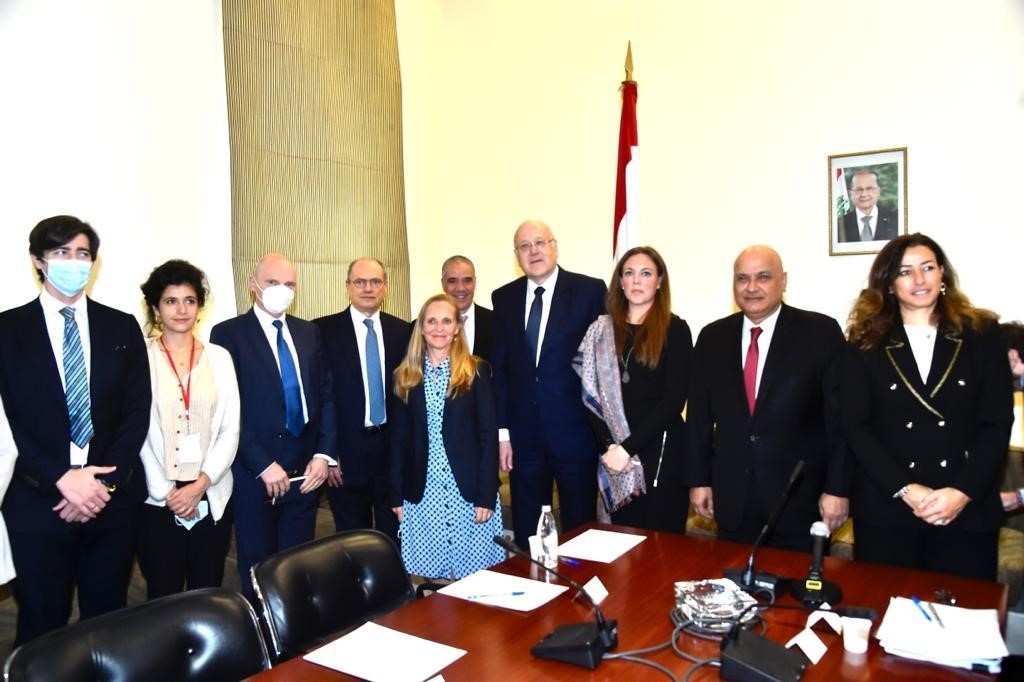Beirut, Lebanon, 12 March 2022 -- UN-Habitat has signed an agreement with the World Bank to implement the project Beirut Housing Reconstruction and Cultural and Creative Industries Recovery.
The USD 12.75 million grant – financed through the Lebanon Financing Facility – will allow UN-Habitat to support the housing, creative, and cultural sectors in the aftermath of the 2020 explosion at Beirut Port, the third-largest non-nuclear explosion ever-recorded. The explosion impacted 70,000 homes and affected more than 300,000 people.
“The Lebanon Financing Facility (grant) is enabling an important opportunity for UN-Habitat and key government and non-government stakeholders to collectively address immediate needs of people, while laying the foundation for longer term urban recovery and housing reform," said Taina Christiansen, Head of UN-Habitat Lebanon Country Programme.
The World Bank grant is seen as significant recognition by all stakeholders for the need to approach the continued recovery and reconstruction of Beirut from a coordinated, multi-sectoral, socio-economic, and area-based perspective while revitalising Beirut’s affected neighbourhoods.
The project is one of the Lebanon Financing Facility’s (LFF) funded projects launched by Lebanon’s Prime Minister Najib Mikati, donors of the LFF, the World Bank, and representatives from UN-Habitat at the end of February 2022.

The LFF is a multi-donor trust fund established by the World Bank in close cooperation with the United Nations and the European Union, and with support from key donors and funds projects within the Lebanon Reform, Recovery and Reconstruction Framework (3RF).
To help Lebanon revitalise areas damaged by the Beirut Port explosion, UN-Habitat will rehabilitate more than 30 residential heritage buildings and support creative and cultural businesses affected by the explosion.
“This project is being carried out by the United Nations Human Settlements Programme (UN-Habitat), which has great experience on the ground in Lebanon, in cooperation with stakeholders; the World Bank is also committed to helping Lebanon, and this project is a continuation of the great efforts it is making,” said Saroj Kumar Jha, Regional Director of the Mashreq Department, World Bank.
Housing recovery
Many of the neighbourhoods heavily damaged by the Beirut Port explosion are located in historic areas of Beirut and were home to residents of all income levels and demographic backgrounds. This project will prioritise complex, climate-resilient repairs of severely damaged vacant residential heritage buildings in these historic neighbourhoods within 5km of the epicentre of the explosion.
Most of the neighbourhoods were inhabited by lower-income and vulnerable households with low tenure security. Buildings to be rehabilitated will be identified based on four prioritisation criteria: geographic scope, level of damage, socio-economic vulnerability, and heritage value.
Creative and cultural industry renewal
The project will also provide technical assistance and grants to affected cultural entities and practitioners, prioritising women and women-led entities, operating in targeted cultural and creative industries to provide them with incentives to continue cultural production in neighbourhoods affected by the explosion.
"Cities should be designed for people. The urban recovery of Beirut must focus on the needs of its residents. Placing housing recovery and cultural and creative industries revitalization at the heart of this process has the potential to retain and maximise the social and built fabric of the city, while safeguarding critical housing, land, and property rights,” said UN-Habitat’s Christiansen.
The project’s design and implementation by UN-Habitat has and will continue be done in close collaboration with local authorities and other governments entities, and in consultation with a large body of civil society organisations, non-governmental organisations, and academia.
UN-Habitat’s long-term vision of multi-sector engagement within the recovery efforts following the Beirut Port explosion is holistic, evidence-based, multisectoral and city-wide. This project is testament to the agency’s vision of the widespread urban recovery and regeneration of Beirut and hopes to return the city’s residents to their homes and restore its lively and rich cultural essence – making it stronger than it was before the explosion.